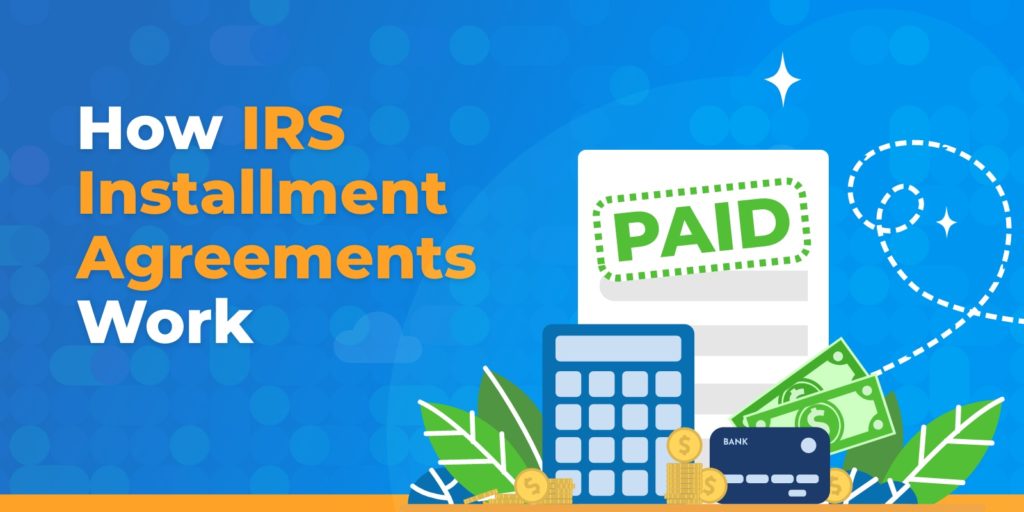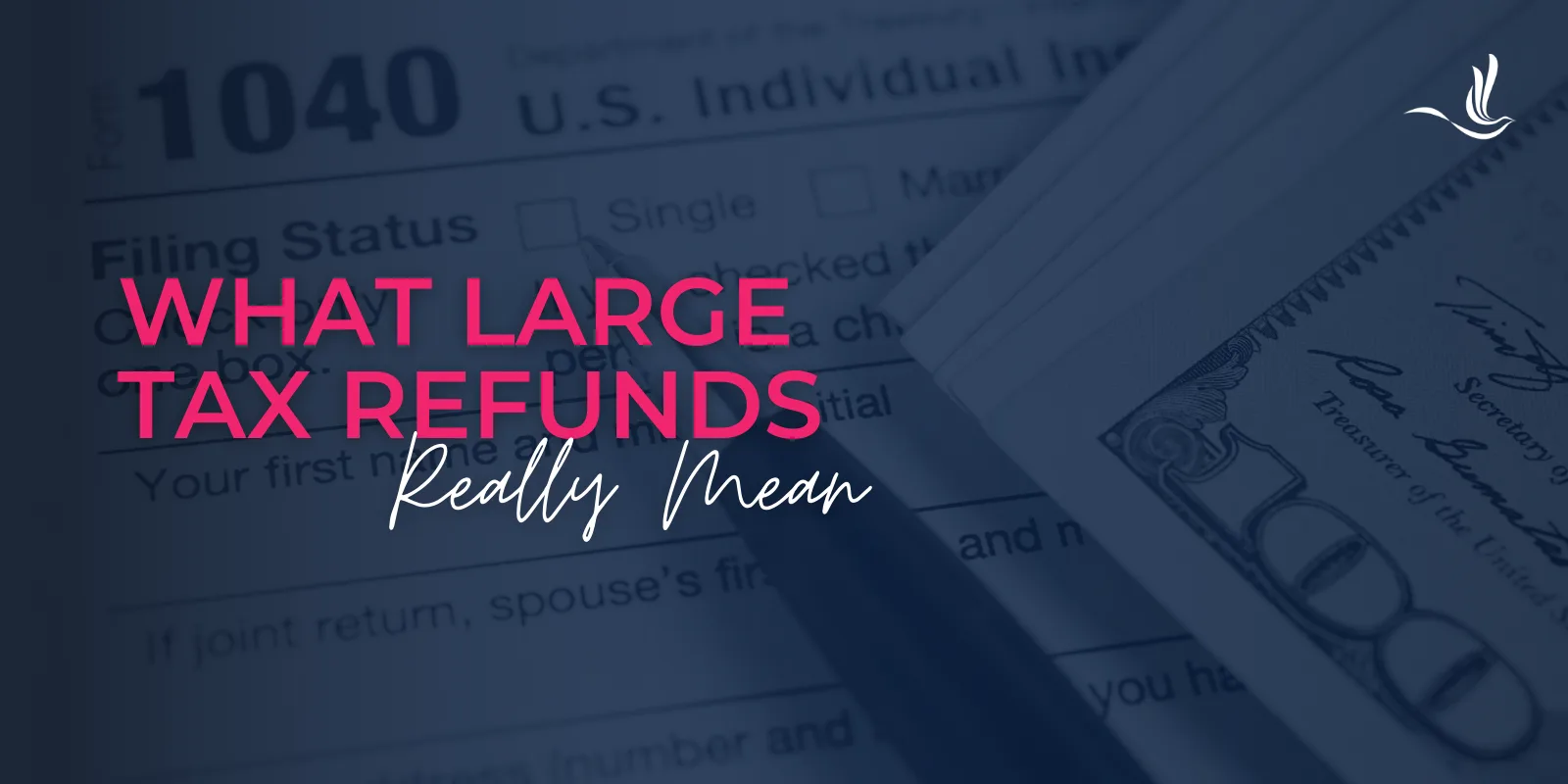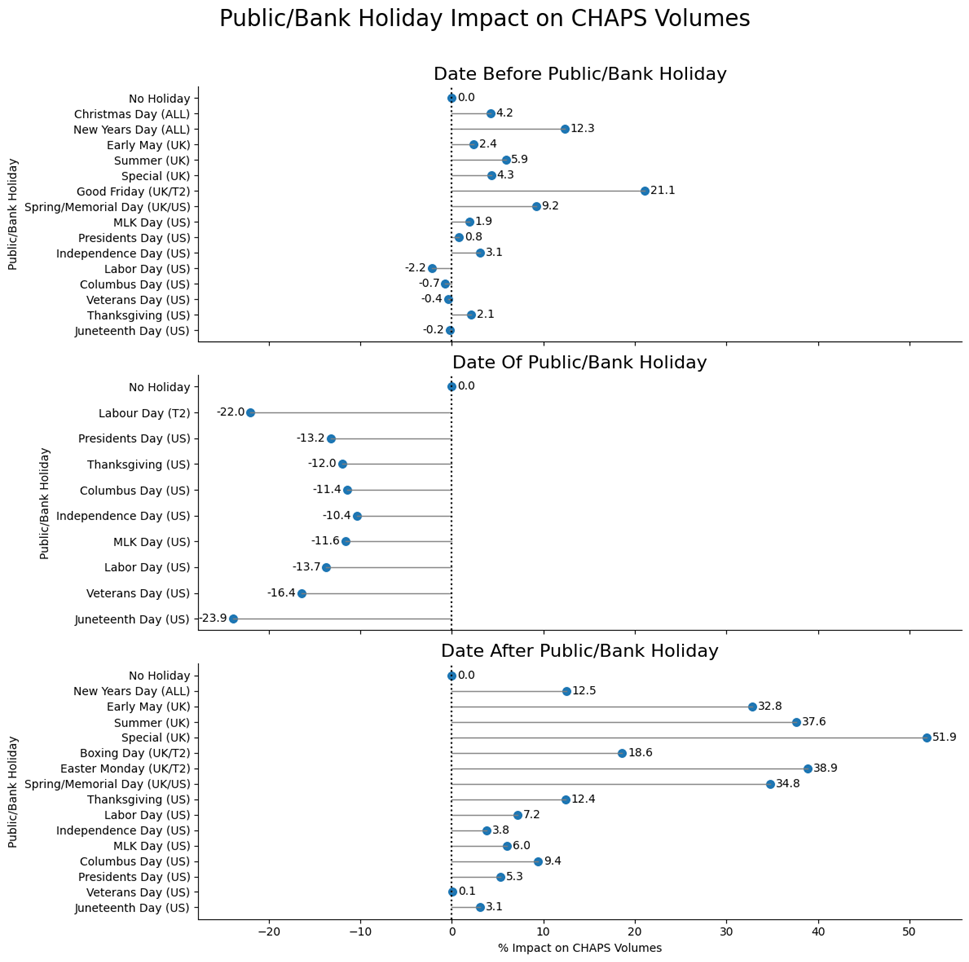When most people first examine tax relief options, they might have their hopes set on an offer in compromise – or their tax debt settled for less than what they owe. Unfortunately, OICs are more often denied by the IRS than they are accepted. When tax debt becomes too much to manage, an IRS installment agreement might be your best option. Here’s an overview of how IRS installment agreements work, including eligibility criteria, application processes, types of agreements, and key considerations.
What Is an IRS Installment Agreement?
An installment agreement is basically an IRS payment plan to pay your tax bill over a set period of time. The installment agreement will bundle all taxes owed if you owe tax for more than a year. That said, you cannot have two installment agreements with the IRS. During this time, the IRS will generally stop levying. IRS collections are typically ceased or prolonged while the installment agreement is pending until it can be approved or rejected. However, the IRS will typically keep any tax refunds you receive and apply them to your tax bill. If the installment agreement request is rejected, collections will be suspended for 30 days. Every taxpayer has the right to appeal a rejection. In this case, collections will be suspended until a decision is made on the appeal.
Eligibility Criteria
To qualify for an IRS installment agreement, taxpayers generally must meet the following criteria:
- File all required tax returns.
- Have no other installment agreements in place.
- Comply with current tax payment obligations.
However, there are also other eligibility requirements based on the type of installment agreement you apply for.
What IRS Installment Agreements Are Available?
The IRS offers four types of installment agreements, each catering to different situations. Let’s review the eligibility criteria, terms, and costs for both.
Guaranteed Installment Agreements
Guaranteed Installment Agreements are one of the simplest and most accessible types of IRS installment agreements, designed for taxpayers with relatively small tax debts of $10,000 or less, excluding penalties and interest. To qualify, you must have filed all required tax returns for the previous five years. You must not have had an installment agreement with the IRS in the past five years. You must prove they cannot pay the tax debt in full when it is due, or within 120 days. Finally, you must agree to comply with the tax laws and make timely payments for the duration of the installment agreement. To calculate your minimum monthly payment, you’d add your tax liability, interest, and penalties together and then divide it by 30.
Guaranteed installment agreements must be paid off within three years. If you miss a payment, the IRS may cancel your agreement and proceed with collections. To apply, you must submit IRS Form 9465, Installment Agreement Request, online, or by mail or phone.
Streamlined Installment Agreements
A Streamlined Installment Agreement (SIA) is a simplified payment plan offered by the IRS that allows taxpayers to pay off their tax debt in manageable monthly installments. To qualify, you must owe $50,000 or less in combined tax, penalties, and interest. If you’re a business, you cannot owe more than $25,000 in combined tax, penalties, and interest. To calculate your minimum monthly payment, you’d add your tax liability, interest, and penalties together and then divide it by 72. This type of installment agreement does come with a setup fee. This amount will depend on certain factors such as how you apply and how you plan to make your payments.
Streamlined installment agreements must be paid off within 72 months or before the Collection Statute Expiration Date (CSED), whichever is sooner. Again, if you miss a payment, the IRS may cancel your agreement and proceed with collections. To apply, you must submit IRS Form 9465, Installment Agreement Request, online, or by mail or phone.
Non-Streamlined Installment Agreements
A Non-Streamlined Installment Agreement is a type of payment plan offered by the IRS for taxpayers who owe more than the thresholds for streamlined agreements. To qualify, you must owe more than $50,000 in combined tax, penalties, and interest. For businesses, you must owe more than $25,000 in combined tax, penalties, and interest. This type of installment agreement also comes with a setup fee.
Your monthly payment is determined by the financial information you provide in IRS Form 433-F or 433-B, Collection Information Statement. The length of the agreement can vary based on your situation. Once the IRS reviews this form, they will either approve the proposed payment plan or suggest modifications based on their financial review. Once the agreement is in place, it’s crucial to inform the IRS of any significant changes in financial circumstances that may affect the ability to keep the agreement. Missed payments can result in the agreement being voided and other collection measures to resume.
Partial Payment Installment Agreement
A Partial Payment Installment Agreement (PPIA) is a type of IRS payment plan that allows taxpayers to settle their tax debt for less than the full amount owed. To qualify, you must demonstrate that you’re unable to pay the full tax liability, even over time. You must submit a detailed financial statement, Form 433-F or Form 433-B, to the IRS. Once you submit this form, the IRS will review the information provided and negotiate the monthly payment amount based on your ability to pay. They will also review your finances every two years. If your financial circumstances change, your payment may increase, or your agreement can be terminated altogether.
The agreement remains in effect until the tax debt is fully paid or the collection statute expires, whichever comes first. The CSED is typically 10 years from the date the tax was assessed. Remember to make all payments on time or you risk having your agreement voided.
Tax Help for Those Seeking an Installment Agreement
If you know you won’t qualify for tax debt settlement, an IRS installment agreement may be your best option to help manage your tax debt. An IRS installment agreement can truly be helpful to many taxpayers struggling with their tax debt. The most important thing to remember is to always make your installment agreement payment. If you default on your agreement, it may be terminated, and the IRS may begin enforcement actions. Be sure the installment agreement terms are viable for your own financial situation. Optima Tax Relief has over a decade of experience helping taxpayers get back on track with their tax debt.
If You Need Tax Help, Contact Us Today for a Free Consultation
Publisher: Source link











